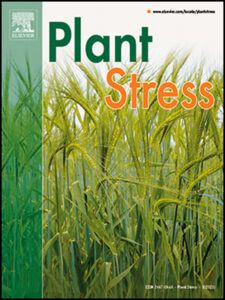Strawberry production challenged by climate change

Strawberries are water-demanding plants. They require consistent moisture to thrive, especially during the fruiting period. Hence, the current climate change scenario poses significant threats to strawberry production, impacting various aspects of growth, yield, and quality. Optimal growing temperatures for strawberries range between 15°C to 27°C, but temperatures exceeding 29°C can lead to heat stress, adversely affecting flower and fruit development, and ultimately reducing yields. Our lab is very proud to have collaborated in the following publication of our friends in Chile describing how plant growth promoting and stress resilience enhancing fungal endophytes can help to mitigate heat and drought stress in strawberry plants.
Yáñez, M.A. et al. 2025 Plant Stress
Synopsis:
Global climate change is linked to an increased occurrence of heat waves and droughts, which alter plant growth and development, and thus threaten food security. By associating with generalist root fungal endophytes that are adapted to harsh environments, crop plants can improve productivity under adverse conditions. Here, we examined the effects of two root endophytes isolated from Antarctica plants (Penicillium chrysogenum and P. brevicompactum) on mechanisms of tolerance to heat and drought in strawberry (Fragaria x ananassa). We found that inoculated plants exhibited better water retention, increased photosynthesis, reduced proline content and lipid peroxidation, and modulated antioxidative enzymatic activity. Transcriptomic and cis-element/transcription factor analyses revealed that differentially expressed genes (DEGs) were associated with abscisic acid (ABA) signaling, including dehydrins, as well as with cellular water homeostasis, such as aquaporins. These DEGs reveal mechanisms that enhance the physiological performance of endophyte-inoculated plants under drought and high-temperatures. This study highlights the novel role of Antarctic fungi in modulating ABA signaling and aquaporin expression, offering potential agricultural applications to enhance plant stress tolerance, which is crucial for improving food security.


